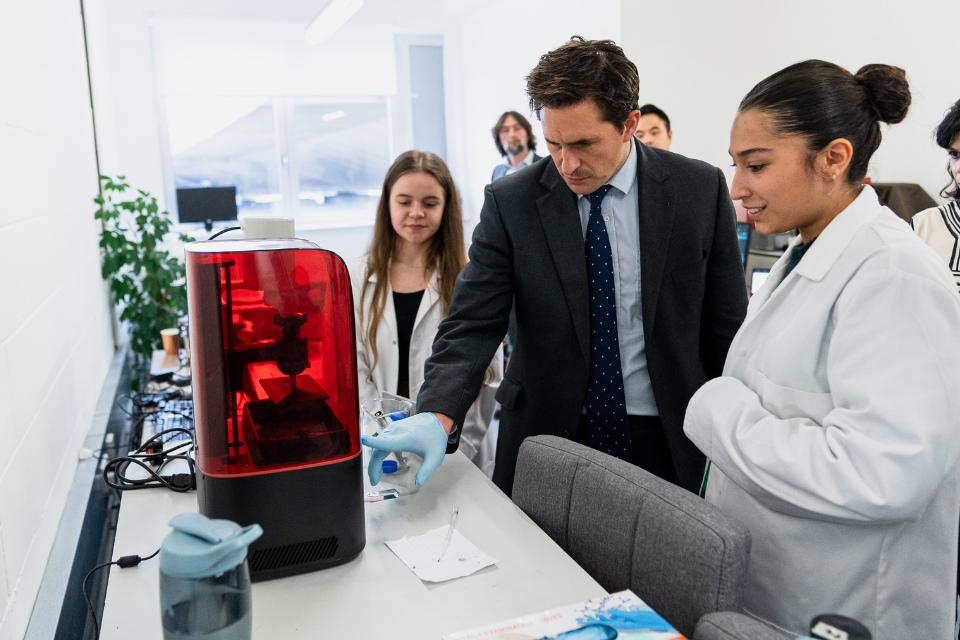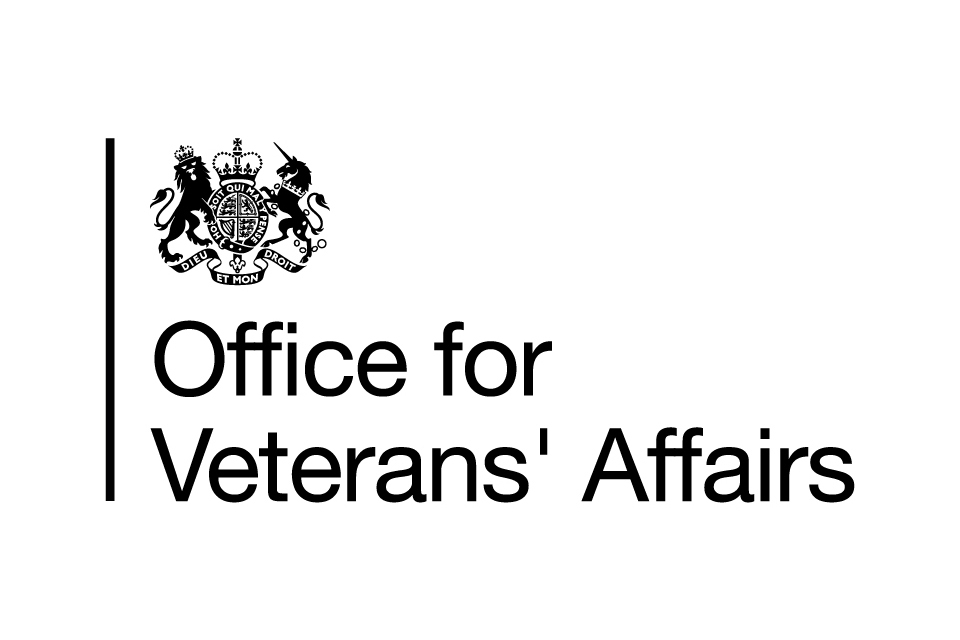- £5 million in overall funding awarded to 22 innovative projects to develop veterans’ healthcare technologies
- Funding achieved through the DASA Themed Competition: Veterans’ Health Innovation Fund, run on behalf of the Office for Veterans’ Affairs
- Veterans’ Health Innovation Fund sought innovations that improve the techniques and pathways for meeting veterans’ physical and mental health needs
The Defence and Security Accelerator (DASA), and the Office for Veterans’ Affairs (Cabinet Office) are pleased to announce that 22 projects have won a share of over £5 million in funding to develop cutting edge veterans’ healthcare technologies.
Secured through DASA’s Themed Competition, Veterans’ Health Innovation Fund, outputs from this competition will improve UK capability to save and enhance lives through the advancement of technologies, interventions and treatments in health. This will enable better future commissioning of treatments.

Proposals submitted to this competition addressed the following challenge areas:
Challenge 1: Digital, data and technology
This challenge area is aimed at harnessing the latest digital and technological capabilities to improve our understanding of veterans’ healthcare needs.
Challenge 2: Surgical technology, bioengineering and rehabilitation with blast injuries
This challenge area is aimed at proposals that offer improvements in innovative surgical techniques, bioengineering and rehabilitation interventions to support veterans who have been subject to blast injuries.
Challenge 3: Public Health, pain management, hearing loss and visual impairment
This challenge area looks into the impact of pain, hearing loss and visual impairment.
Challenge 4: Initiatives to help identify and/or provide solutions to disparities in female veterans’ health and healthcare
This challenge area is interested in projects that could improve our understanding of female veterans’ health challenges, and what care pathways can be put in place to better support them.
Enhancing veterans’ healthcare
22 projects have been awarded funding to fast-track their innovative solutions. Congratulations to the winners:
Blesma: The Limbless Veterans Charity
This project aims to explore the lived experience of injured veterans who are wheelchair and electronic powered vehicle users, and to provide a comparison of the effectiveness of selected categories of assistive technologies.
Imperial College London
Four separate, yet complementary projects looking at further research to improve prosthetics for amputee veterans.
Imperial College London and Anglia Ruskin University
This project aims to evaluate the Veterans Trauma Network (an NHS England treatment pathway for veterans with physical health needs), with a view to supporting its future growth and development.
Umio
This project aims to develop veteran chronic pain peer-support and self-learning/management platform, to help veterans to live better and well with long-term pain.
NuTissu ltd
This project aims to develop E-Plasters that can be wirelessly, intuitively activated with a patient’s smart phone or a laptop, to enable the self-management of rapid and complete wound healing.
University of Birmingham
This project aims to evaluate blood biomarkers against visual and clinical assessments from veterans who have suffered traumatic brain injury to help develop an algorithm to predict prognosis in veterans.
Forward Assist
This project aims to look at and develop a clear understanding of the multiple and complex issues faced by military veterans with lived experience of sexual assault, and identify gaps in service provision.
Cardiff University
This project aims to develop online military-focused cognitive behavioural therapy to support veterans with PTSD.
Radii Devices Ltd
This project aims to improve residual limb management and rehabilitation through user-reported data, via a digital application
King’s College London and Combat Stress
This project aims to develop a digital application so it can better support female veterans with problem drinking.
St John and Red Cross Defence Medical Welfare Service, NHS Lanarkshire and the University of the West of Scotland
This project aims to bring together welfare support and technology to benefit isolated veterans in Lanarkshire in collaboration with Technology Enabled Care.
Anglia Ruskin University, Leeds Beckett University, The King’s Centre for Military Health Research, the Veterans’ Trauma Network and Defence Medical Welfare Services
This project aims to co-design recommendations for improving service delivery and care pathways for female veterans’ physical health.
University of Exeter and IonaMind
This project aims to develop and evaluate an artificial intelligence-supported intervention to treat depression and anxiety in female veterans.
Bravo Victor working with Esme’s Umbrella and Moorfields Eye Hospital
This project aims to improve our understanding of visual hallucinations in military veterans through a programme of research on prevalence, phenomenology, practice patterns, and a novel therapeutic intervention.
University of Leicester
This project aims to develop an online test of executive dysfunctions as a marker of PTSD in UK service veterans, to enable fast, economical and accurate diagnosis of PTSD and improve the sensitivity of diagnosis and evaluation of clinical treatments.
Swansea University
This project aims to evaluate the efficacy and cost-effectiveness of a smartphone-based app to reduce harmful gambling and PTSD symptoms among veterans.
Imperial College London and Northumbria University
This project aims to create a comprehensive evidence base for the physical health needs of the veteran community.
Northumbria University
This project aims to assess the impacts of, and risks associated with, military service on brain health in female veteran
Imperial College London to the ADVANCE study, the Defence Medical Rehabilitation Centre, Welcome Trust and Defence Medical Services
This project aims to investigate the characteristics of combat injury, and key medical and surgical interventions to evaluate whether these have a beneficial effect on the long-term outcomes in UK veterans.
Ensuring the UK can provide the best healthcare for veterans
These solutions will help improve the techniques and pathways for meeting veterans’ physical and mental health needs.
Learn more about the Veterans’ Health Innovation Fund Themed Competition here.

















